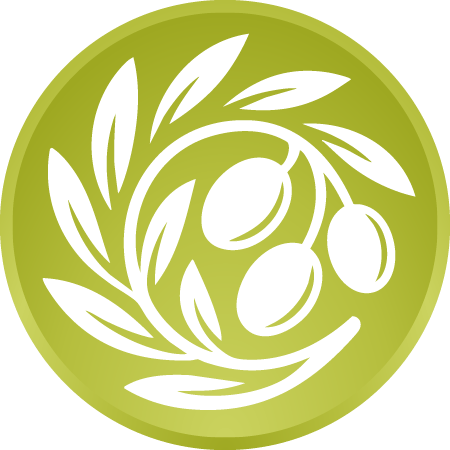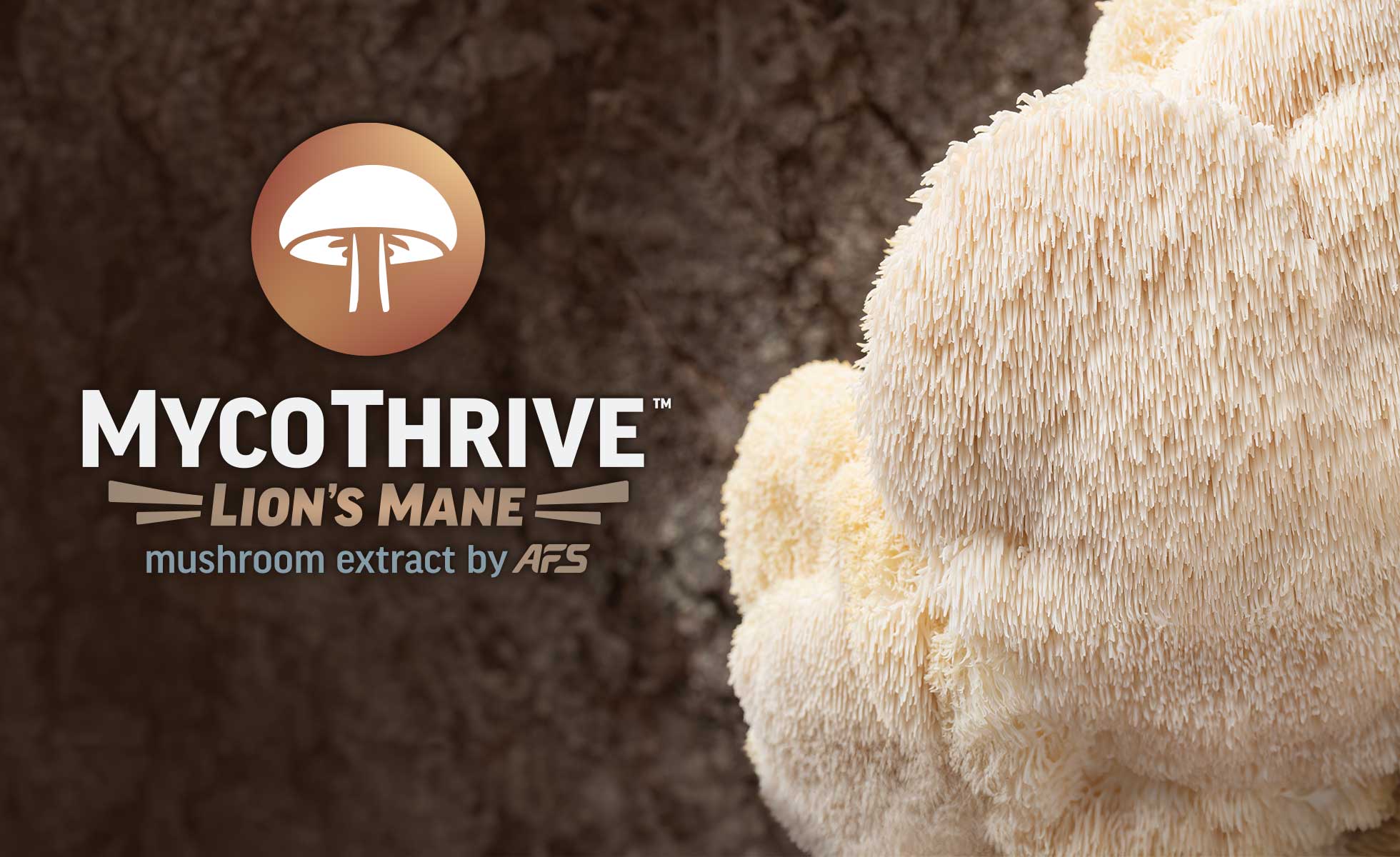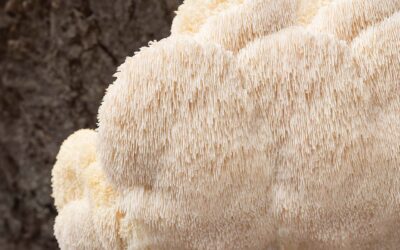In a double-blind, randomized, placebo-controlled crossover study, 40 healthy adults were evaluated on the acute (single-dose) response to 1000 mg of lion’s mane, examining its effects on mental acuity and mood. The study introduces MycoThrive™ Lion’s Mane, a premium organic lion’s mane extract and the newest addition to a series of innovative functional ingredients developed by Applied Food Sciences (AFS), a Texas-based company.
Consumers are increasingly drawn to natural supplements that can enhance cognitive function and support emotional well-being. Among these supplements, lion’s mane mushroom is notable for its impressive nootropic properties. However, for this emerging ingredient to succeed, the industry must support it with more high-quality scientific research to better determine its proper usage levels and unique functional properties, ensuring consistent, noticeable benefits for consumers. This study is a significant addition to the numerous clinical research projects published by AFS in recent years, marking a notable milestone for modern research on lion’s mane mushrooms.
Understanding Lion’s Mane
Lion’s mane (Hericium Erinaceus) is a unique mushroom with a long history of traditional use in Eastern medicine. Often referred to as the “Mountain Priest” or “Smart Mushroom,” it has garnered attention for its ability to support cognitive function and overall well-being. The primary bioactive compounds found in lion’s mane include β-glucan polysaccharides, proteins, hericenones, and erinacines, which all affect how the ingredient functions in the body. Evidence suggests that the primary mechanism of action for cognitive support is through the stimulation of Nerve Growth Factor (NGF) synthesis. NGF is essential for brain cell growth, neuroprotection, and cognitive processes such as memory, attention, and spatial navigation.[i] AFS is proud to partner with award-winning mushroom biotechnologists in Finland to responsibly source its high-quality, nordic-grown lion’s mane.
Study Methodology
The placebo-controlled crossover study was designed to evaluate attention, working memory, mental processing speed, and mood in healthy adults. The study examined a single dose of 1000 mg of MycoThrive™ Lion’s Mane (formally known as “Nordic Lion’s Mane”) vs. 650 mg of guayusa extract (AmaTea® Max) vs. the placebo. Testing occurred at three intervals: baseline pre-ingestion, as well as 60 and 120 minutes post-ingestion.
The study measured cognitive function through comprehensive neuropsychological assessments, including the Go/No-Go, Serial-Sevens, and N-Back tasks. Participants were also given subject assessments for cognitive perception based on a visual analog scale (VAS) and for mood based on a subjective happiness scale (SHS). All tasks used in this study are clinically validated testing methods. While this article focuses on the results of the lion’s mane, the complete study can be viewed in the MDPI Nutrients Journal.
Results of MycoThrive™ Organic Lion’s Mane
Participants taking MycoThrive™ Lion’s Mane demonstrated acute improvements in working memory, attention, concentration, and reaction time that were statistically significant compared to the placebo. Additionally, MycoThrive™ Lion’s Mane helped improve the participants’ mood and sense of happiness compared to their peers, reflecting a significant impact on contentment and emotional well-being.[ii]
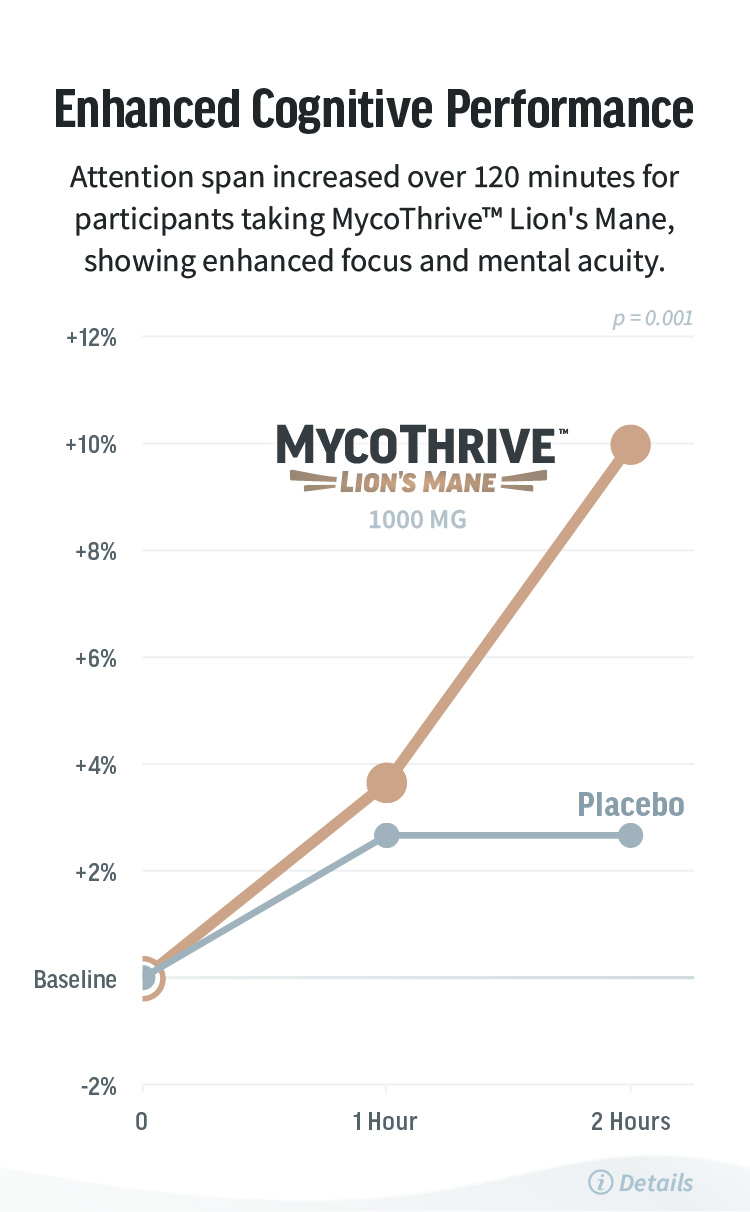
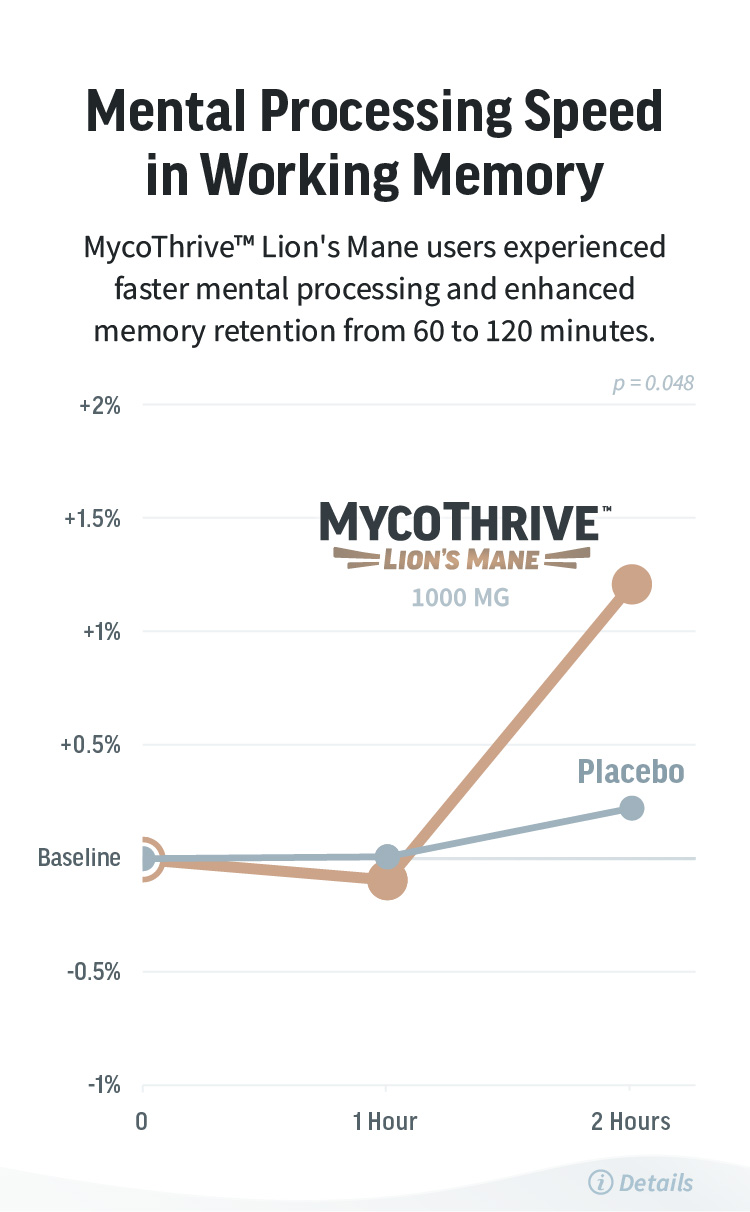
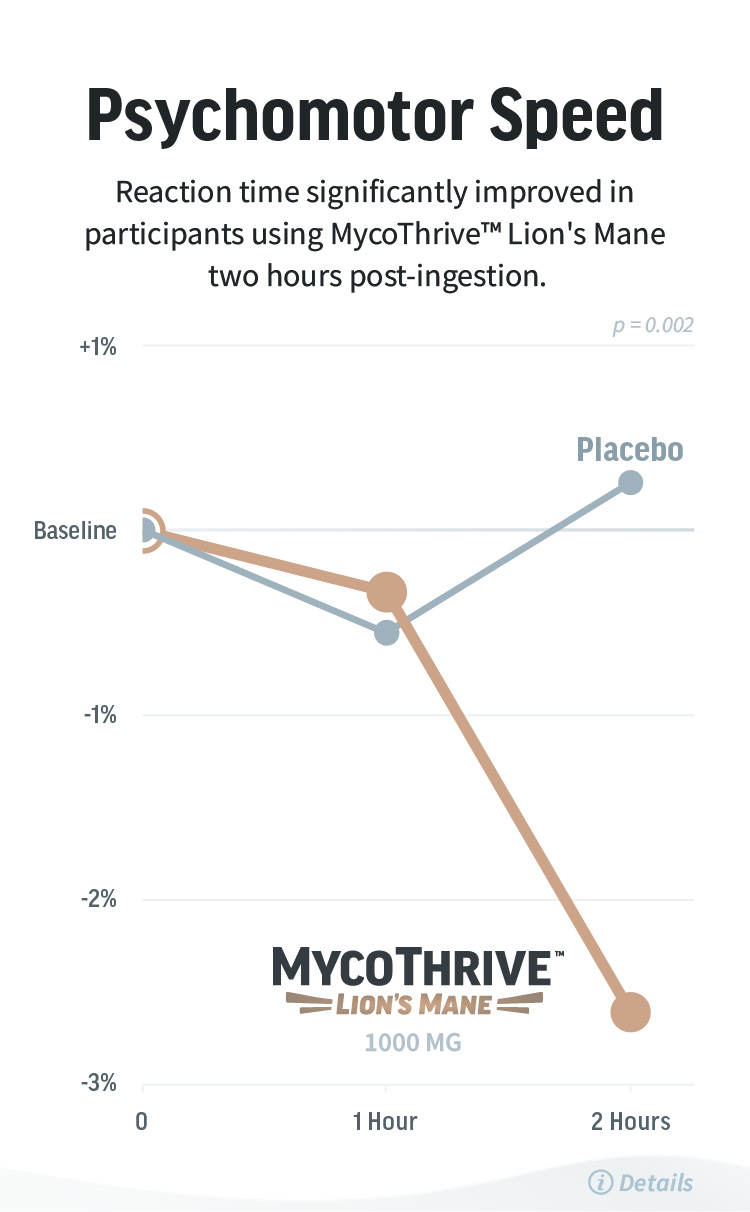
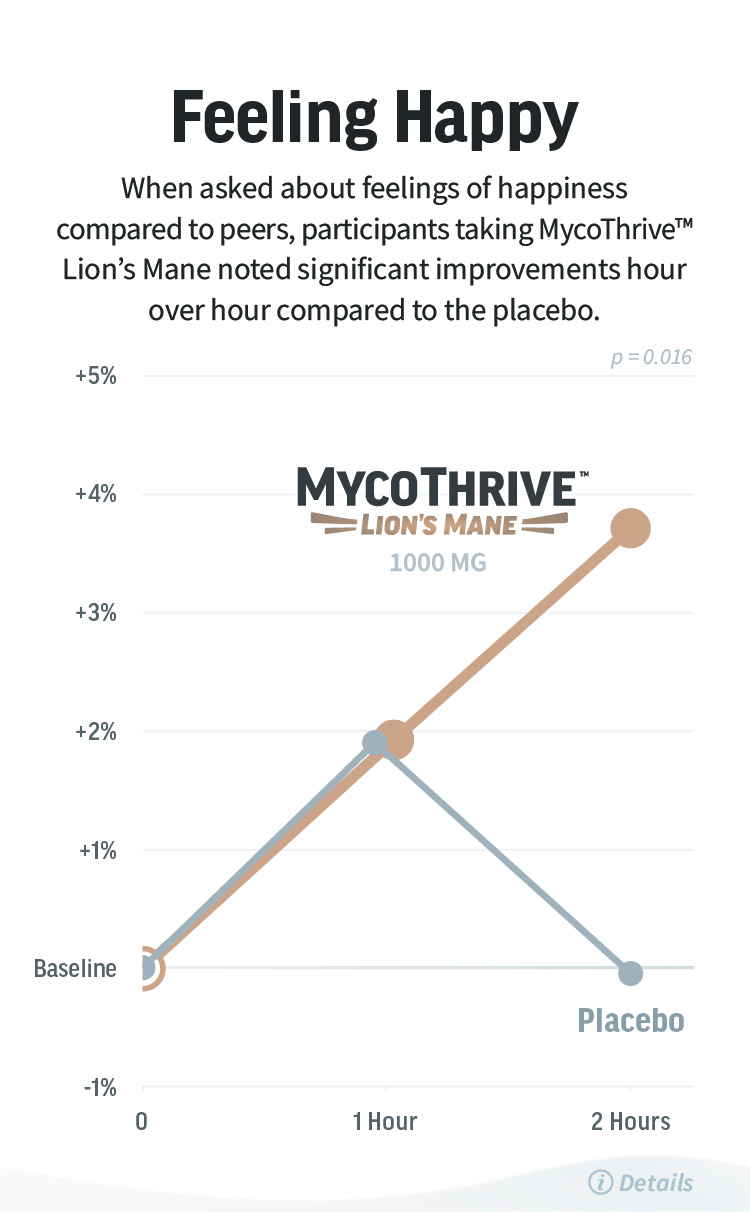
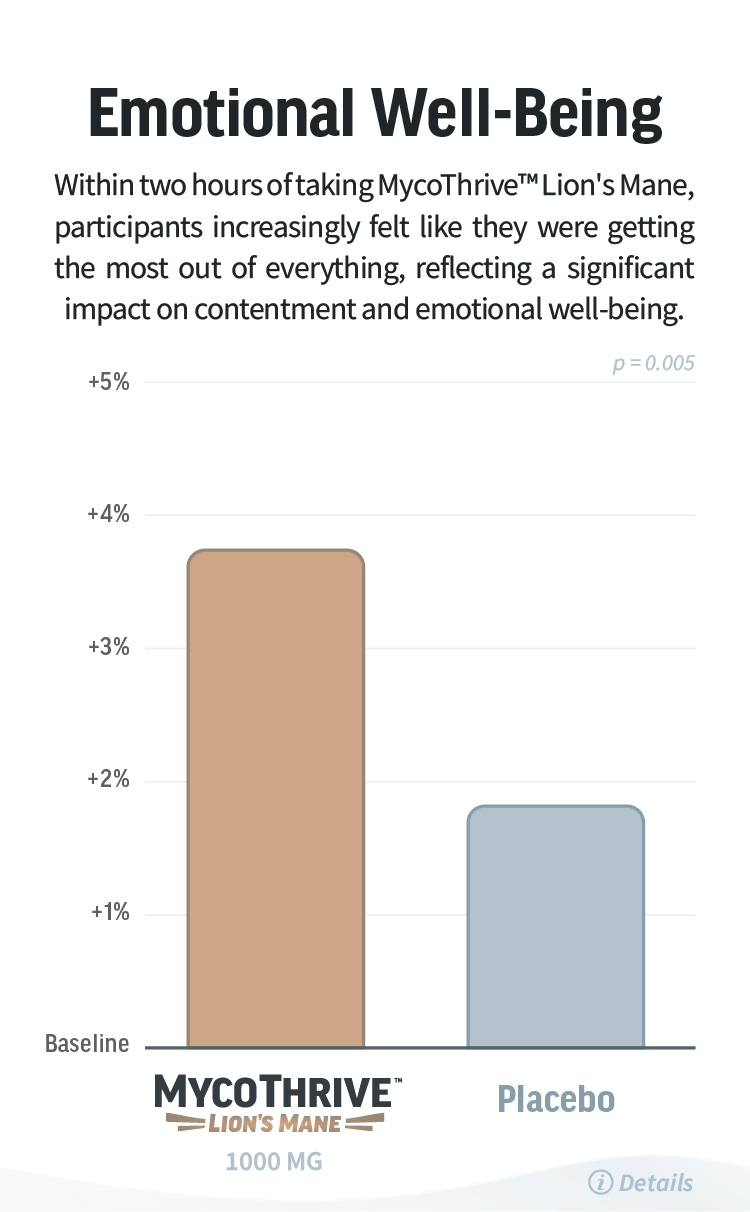

The Importance of this Study
For lion’s mane, this study marks an important milestone in understanding its acute cognitive benefits in healthy adults. Until now, most lion’s mane studies have examined its impact on people with known health conditions.[iii] Only a few studies have explored the effects of lion's mane in healthy adults [iv, v], and fewer have examined its acute (i.e., single-dose) cognitive effects. Therefore, this research challenges the prevailing belief that lion's mane can only provide more long-term, chronic benefits (i.e., 30-60 days use). Instead, the study takes a significant step towards understanding lion's mane's more immediate cognitive advantages for healthy adults in as little as 60 minutes post-ingestion. Moreover, it helps address the pressing need for transparency and alleviates confusion by providing more consistent structure-function claims, reducing skepticism and increasing confidence in the market.
Conclusion
For over 20 years, Applied Food Sciences (AFS) has supported the natural products industry with innovative functional ingredients. The company is excited to announce its collaboration with some of the world's leading mycologists to extend its expertise into functional fungi with the launch of MycoThrive™ Lion’s Mane, a clinically studied extract for mood and focus. This new and exciting ingredient is part of the MycoThrive™ premium line of functional mushrooms that also includes cordyceps, chaga, reishi, maitake, and shiitake. To see the entire AFS ingredient portfolio or inquire about MycoThrive™ Lion’s Mane, click here.
Citations:
- Zhang, C.-C.; Cao, C.-Y.; Kubo, M.; Harada, K.; Yan, X.-T.; Fukuyama, Y.; Gao, J.-M. Chemical Constituents from Hericium Erinaceus Promote Neuronal Survival and Potentiate Neurite Outgrowth via the TrkA/Erk1/2 Pathway. Int. J. Mol. Sci. 2017, 18, 1659. [Google Scholar] [CrossRef]
- La Monica MB, Raub B, Ziegenfuss EJ, Hartshorn S, Grdic J, Gustat A, Sandrock J, Ziegenfuss TN. Acute Effects of Naturally Occurring Guayusa Tea and Nordic Lion’s Mane Extracts on Cognitive Performance. Nutrients. 2023 Dec 6;15(24):5018. doi: 10.3390/nu15245018. PMID: 38140277; PMCID: PMC10745489.
- Brandalise, F.; Roda, E.; Ratto, D.; Goppa, L.; Gargano, M.L.; Cirlincione, F.; Priori, E.C.; Venuti, M.T.; Pastorelli, E.; Savino, E.; et al. Hericium Erinaceus in Neurodegenerative Diseases: From Bench to Bedside and Beyond, How Far from the Shoreline? J. Fungi 2023, 9, 551. [CrossRef]
- Saitsu, Y.; Nishide, A.; Kikushima, K.; Shimizu, K.; Ohnuki, K. Improvement of Cognitive Functions by Oral Intake of Hericium Erinaceus. Biomed. Res. 2019, 40, 125–131. [CrossRef]
- Grozier, C.D.; Alves, V.A.; Killen, L.G.; Simpson, J.D.; O’neal, E.K.; Waldman, H.S. Four Weeks of Hericium Erinaceus Supplementation Does Not Impact Markers of Metabolic Flexibility or Cognition. Int. J. Exerc. Sci. 2022, 15, 1366.
